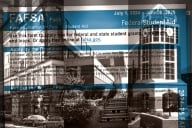You have /5 articles left.
Sign up for a free account or log in.
Like leaders in other states, Gov. Ed Rendell of Pennsylvania has had his eye on the many millions of dollars in profits that his state's student loan agency generates. In his budget message last winter, he suggested that the Pennsylvania Higher Education Assistance Authority cough up at least $100 million to pay for laptops in public schools and capital projects at community colleges.
The proposal has gone virtually nowhere, as officials at the quasi-governmental agency say such spending isn't feasible (and might well be illegal) and the governor has little authority (other than the bully pulpit, and the ability to appoint some of its board members) to tell the agency what to do. But to the extent Rendell hopes to continue to put public pressure on PHEAA to put more of its profits toward other state goals, the governor and his aides must be rubbing their hands with glee at recent revelations about large cash payments the agency made to its executives last fiscal year.
Local newspapers reported last week that PHEAA had paid its top seven officials bonuses (which the company prefers to call "incentive payments") of nearly $900,000, which pushed the total compensation for its president and CEO, Richard Willey, to $469,934 -- well above, the reporters and editorial writers noted drily, Rendell's $161,173.
At a news conference last week, Rendell told reporters that "if PHEAA had a good year, we should be plowing that money back into grants." In an interview this week, Rendell's spokesman, Charles Ardo, said the governor was disappointed that officials at the agency had not embraced his plan for it to contribute to the school laptop program, but that he believed PHEAA may be "grudgingly moving slowly in that direction.... It may not be reflected in policy immediately, but certainly we hope" it happens eventually. "The governor's got a limited amount of influence with the PHEAA board because of its makeup and structure, and so there aren't a lot of steps we can take, other than the jawboning that a governor's able to do."
The reports about the compensation for PHEAA execs offers a prime opportunity for such jawboning, and administration officials aren't passing it up. "There are many, many students struggling to meet the financial demands of college, and the governor feels that PHEAA's first priority ought to be helping the students. Any time money is spent for any other purpose, it does not meet the governor's expectations."
Officials at the Pennsylvania agency took issue both with the reports about the executive compensation and with the suggestion that PHEAA is failing to fulfill its obligations to the Pennsylvania public.
Keith New, PHEAA's director of communications, said the news reports mistakenly leave the impression that the agency is paying its officials with state funds, when "we don't use a penny of state dollars to administer our business -- everything is paid for with our business earnings," which were substantial. In addition, New said, the payments to the executives were based fully on performance in accordance with the company's incentive plan, which was drafted with the help of Mercer Human Resources, a leading consulting company.
And the comparison of PHEAA officials' pay to that of state officials, he said, is flawed, since the company, as one of the country's top providers of student loans, is competing not against other Pennsylvania agencies but against major private companies like Sallie Mae and Citibank -- "some of the biggest, most profit-hungry corporations in the world." (Sallie Mae's chief executive, he said, citing news reports, earned nearly 100 times what PHEAA paid its CEO last year, including stock options.)
Regarding the idea that PHEAA isn't doing enough to help the state, New bristled. The agency "gave more than $200 million from our business earnings to pay for critically needed student aid programs and services," he said, a "57 percent increase in self-funded public service funding over the previous year without any taxpayer support."
No one from the Rendell administration has approached PHEAA to discuss the laptop proposal specifically, New said. But would agency officials be open to it? New was asked. It's not so much that they don't want to do it, but that they can't, he said. "The way we understand it, it's simply against our charter. Our earnings have to be turned back to create opportunity for postsecondary education," New said. Providing laptops to high schoolers might be nice, he said, "but is that really keeping with that mandate?"









